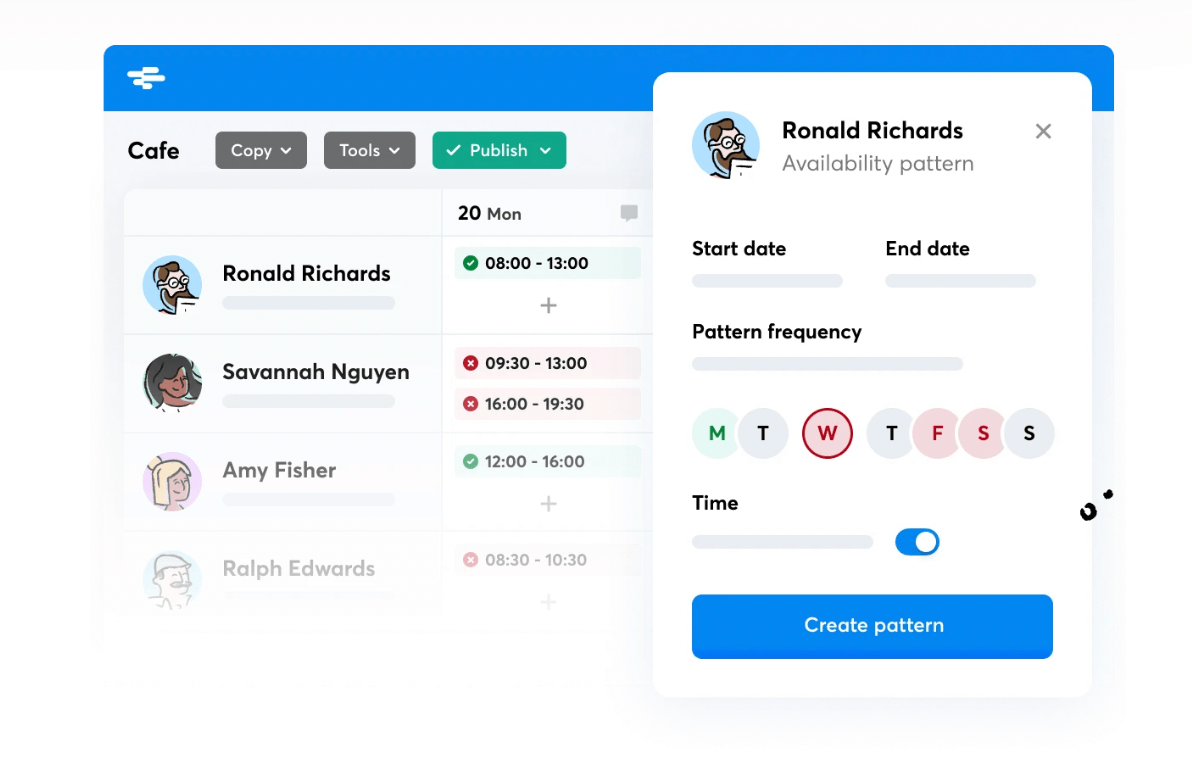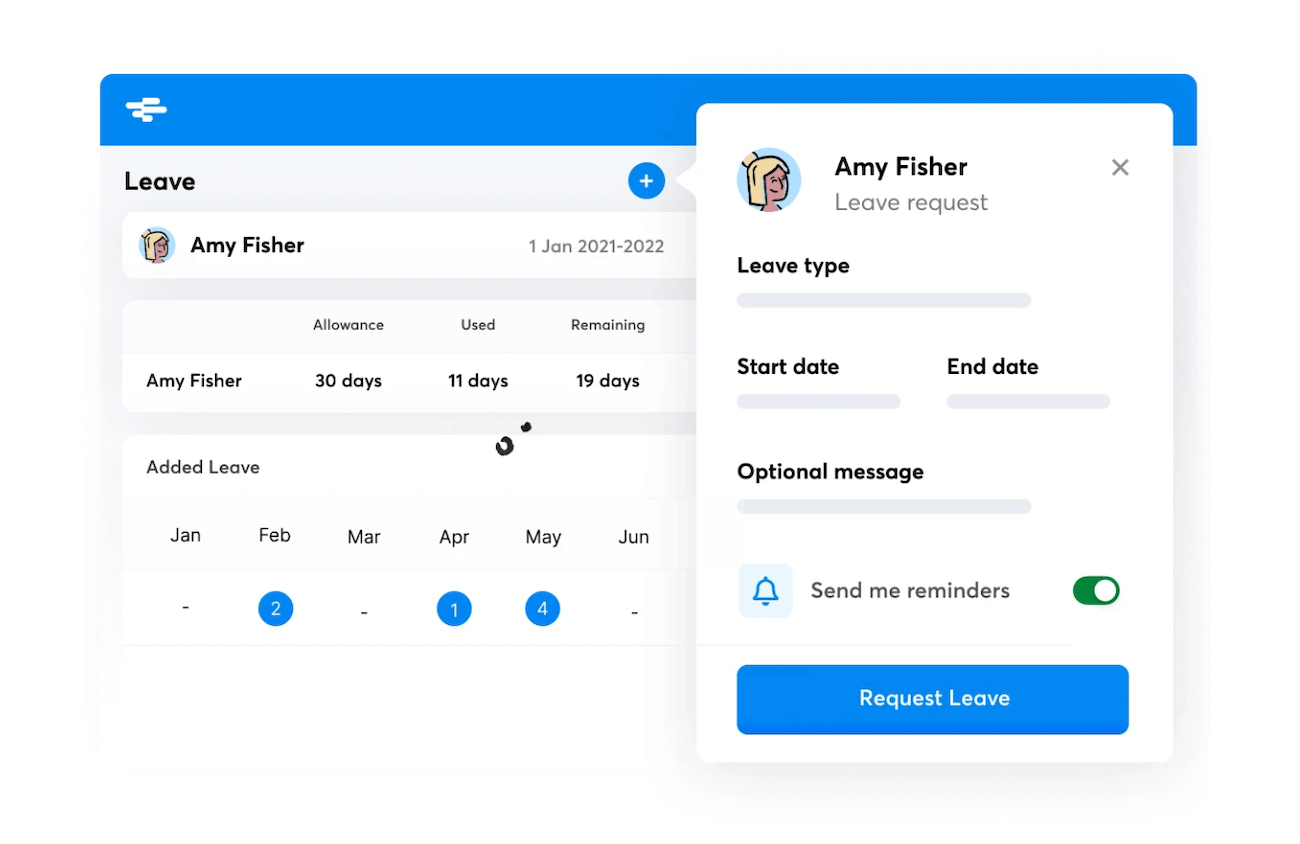We’re all familiar with terms like “employee engagement” and “employee satisfaction” by now, and consider them important metrics in the world of staff management.
But what about employee experience?
Employee experience has an enormous impact in HR and management circles, and looks set to change the way businesses recruit, train, and retain their staff for years to come.
But what exactly does employee experience mean, and is this something business owners should invest their time and money in?
We answer these questions (and more), discussing why employee experience matters and how to get it right.
What is employee experience?
Employee experience vs. employee engagement?
Why is employee experience important?
How do you measure employee experience?
How to create a great employee experience
Wrap up
What is employee experience?
Employee experience (sometimes shortened to EX) can be defined as the sum of all the interactions an employee has throughout their life cycle with a company.
Beginning when they first learn about a business and finishing at the end of their tenure, employee experience is of increasing importance to future and existing staff alike — in some cases, even trumping pay and benefits.
Employee experience can vary from one industry to the next, but there are common touchpoints that are shared by all, including:
- Application & recruitment
- Onboarding & induction
- Company culture
- The working environment
- Role & responsibilities
- Communication
- Career development
- Offboarding & exiting the business
Businesses and employers that incorporate these contribute to a positive work environment for staff – something you'll notice and reap the benefits of in employee engagement.
What is the difference between employee experience and employee engagement?
Employee engagement is the result of a good employee experience. It's the end goal, and employee experience is the journey to reach it.
Employee experience is what a business provides staff, from the likes listed above, and employee engagement is the result of that, seen in how staff feel and act (in themselves and towards the company).
Think of it this way:
- Employee experience: What the employer inputs and how
- Employee engagement: The outcome seen in staff's mood, productivity, and job satisfaction
Why is employee experience important?
There was a time when managers focused most of their HR efforts on employee engagement. While this remains important (an engaged workforce is, after all, a productive one), today’s employee also wants to feel:
- The work they do has value
- Their personal needs are being accommodated
- A sense of belonging within a company or organisation
Employee experience shifts the focus to what is good for the employee. The upside of focusing on what employees want is that it often results in better engagement and performance.
So why else should employers and business owners invest in providing a positive employee experience?
It makes recruitment easier
Potential employees do their research before applying for jobs. Social media and employment sites like Glassdoor provide transparency and insight into the reality of working at particular companies. Whether that insight is good or bad will depend on the individual experiences of former and current employees.
Employees stick around for longer
Staff whose employers invest in the employee experience are more likely to feel attached to their job, their coworkers, and even the brand itself. Which is great news for employers as it saves hundreds, if not thousands, of pounds on recruitment.
RotaCloud customer and popular Yorkshire Dales hotel & restaurant Beck Hall managed to hang on to their entire workforce throughout the Covid-19 pandemic (a time when many hospitality businesses saw high numbers of resignations), owing in no small part to the positive employee experience their staff enjoy.
It makes for a better customer experience
When staff feel valued and respected by their employer, they’re naturally happier and more engaged in their work. This, in turn, has a positive effect on the level of customer service they provide.
Put simply, in today’s fiercely competitive job market, employers can't afford to ignore employee experience.
How do you measure employee experience?
Staff turnover
A direct measure of employee experience is in staff retention. The higher your retention (or lower your turnover rate), the happier we can assume your employees are. The lower your retention (or higher your turnover rate), the more your employee experience needs improvement.
Try this retention formula to see how effective your current employee experience is:
(Number of employees at the end of the year ÷ number of employees at the start of the year) x 100
Employee surveys
One sure way to measure employee experience is by hearing it from the horse's mouth (well, not directly). Conduct anonymous surveys to get a sense of morale and staff's views on certain aspects of the company, from work environment and culture to development and overall happiness.
With surveys for an eNPS (Employee Net Promoter Score), where staff rate on a scale from 0 to 10 how likely they'd recommend their place of work to others, you can work out overall job satisfaction from the number of promoters (answers scaled 9-10), neutrals (7-8), and detractors (0-6).
Productivity, Wellness and Absenteeism
Does productivity seem down or more lacklustre than usual? Are a lot of staff experiencing stress or anxiety? Maybe you're having too many regular absences, many of which are last-minute or without strong reasons? Whether you notice this in one or multiple members of staff or even across the board, something is probably causing it.
Poor mental well-being and absenteeism can go hand-in-hand and, if not addressed, can affect productivity, your retention, and revenue. Knowing what to look for, paying attention to employees' moods, and having a good attendance tracker can help you keep an eye on these factors.
How to create a great employee experience
Creating a positive employee experience is all about ensuring meaningful touchpoints for your staff throughout their relationship with your business.
You know your business better than anyone else, but as a starting point, here are ways to improve employee experience, regardless of sector.
1. Provide five-star onboarding
Where good onboarding sets staff up for a positive, productive working experience, lacklustre onboarding can leave new employees feeling lost, detached, or even resentful of their new employer — feelings that can easily spread through an entire workforce if left unchecked.
Recruitment and onboarding points to consider:
- The introduction. Make sure your application process is as smooth as possible, and avoid asking applicants to do things like writing out their entire work history when they could simply send in their CV. Also, never keep applicants hanging. We've all been there, and it isn't fun. If they haven't been successful in their application, let them know.
- The interview. As well as a time to learn about the candidates, job interviews allow you to present your business in the best possible light, highlight your values (more on this below), and set out your expectations.
- The interim. Having to chase up the outcome of an interview, or pester a new employer for details like the start date, could set alarm bells ringing and give the impression that people are not important to you.
- The induction. Staff who are given a warm welcome, buddy'd up with a more experienced member of the team, and regularly checked in with are more likely to feel positively about their employer and stick around for longer.
There’s a skill to employee onboarding, but it can have a profound impact on how staff perceive your business, so it’s worth taking extra care of new starters and ensuring that they’re set up for success.

2. Create and nurture your company culture
Staff want to feel that they belong, and that those around them see them as more than just another name on the rota.
One way to achieve this is to create a strong company culture that focuses on teamwork, respect, and inclusion, and establish a working environment where people feel heard.
To do this, you could:
- Create a set of values. Your company values set out what you stand for as a business, and provide managers and employees alike with a yardstick to base their decisions and behaviours on.
- Recruit like-minded people. When creating job ads, be sure to mention your values and the overall company vibe. You want to recruit people who add to your company culture, not take away from it.
- Give work meaning. Not every work-related task is going to be glamorous, but if your staff understand its importance and the role it plays in your business vision, then they’ll be able to see the bigger picture.
- Be transparent. If you want your staff to feel at home at your company, they need to know what’s going on. Prioritise internal communication to ensure that your staff are never left out of the loop about things that affect them.
3. Try to accommodate personal commitments
Employers who constantly chop and change the schedule or give little to no regard to their employees’ commitments outside of work aren't likely to hang on to their staff for long.
When putting together the work rota, try to take into account your employees’ preferences and working availability by asking them to communicate this in advance.
Workforce management systems like RotaCloud allow staff to mark their availability for shifts in advance, which managers can then see while building the rota. This means the schedules work for everyone.
If an employee’s shift preferences can’t be accommodated, consider giving staff the option to organise cover or shift swaps as a workaround.

Build a rota that works for everyone
There's no need for guesswork — with RotaCloud, you can see your employees' availability right there on the rota as you plan.
4. Be competitive on pay (if you can)
Job satisfaction and feeling valued at work are hugely important for staff, but the amount you pay them, especially in comparison to competing businesses, can still have a big impact on morale.
Becoming a real living wage employer might not be possible for everyone, especially after the rough few years we’ve had. But employers who do manage to pay their staff a little more not only report higher staff retention, which in itself is an enormous cost-saver, but also increased engagement and customer service as well.
5. Encourage regular feedback
You can’t improve things at your business that you don’t know about, so it’s important to make your staff aware that they can — and should — be communicating what works and what doesn’t, whether it concerns the company itself, a product or service you offer, or any employee’s individual role.
Similarly, staff should be given regular, constructive feedback from their manager or direct supervisor — and not just on what they can improve on, but the things they’re doing well and should keep up as well (more on this below).
Whether you hold sessions in person, ask staff to jot their thoughts down in an email, or invite your employees to give their thoughts anonymously, make sure to do it regularly — and act on the feedback you receive so that your staff know their voices have been heard.

6. Always keep your staff in the loop
There are few things more frustrating and damaging to the overall employee experience than a lack of communication or feeling like you’re the last to receive information that’s important to your job.
For hourly workers and shift-based staff, especially, not knowing about changes to the schedule, sometimes even that entire shifts have been cancelled, is a source of major frustration.
Changes happen — an order gets cancelled, a booking comes in at the last minute, someone calls in sick. But when staff are the last to find out that their rota has been changed — and with it, the plans they’d made outside work — it’s easy for them to feel that their employer has little regard for their personal lives. And that work is taking over said personal lives.
If a change has to be made to the work rota, you should make communicating those changes your top priority — whether that's by phoning around, telling employees in person, or making use of staff scheduling software that automatically notifies your team whenever there’s been a change to the schedule.

Automatic shift updates for your staff
RotaCloud lets your staff know the moment there's been a change to their schedule. No more confusion, no more missed shifts.
7. Celebrate the wins
It’s common for employers to set KPIs (Key Performance Indicators) as a way to measure their staff’s performance at work. While these are useful, it’s important to think beyond the simple box-ticking exercise, and to make sure your staff are celebrated when they go above and beyond or achieve something special.
Here at RotaCloud, we have a dedicated Slack (an internal messaging platform) channel called #RotaProud, where managers and team members can give each other a shout out.
As well as making staff feel appreciated when they’ve gone the extra mile, the channel encourages a working environment where team members actively recognise each other’s successes, which also sets the bar that little bit higher for everyone.
You might not use software like Slack at your workplace, but taking the time to publicly recognise staff achievement will do wonders for morale and remind your employees that hard work does not go unrewarded. Even a little recognition goes a long way.
8. Encourage the use of annual leave
We all know how important it is for staff to make use of their annual leave, but it's easy in busy, high-pressure work environments for people to feel like they don’t have time to book a holiday, or that they’d be letting the side down if they did.
Sometimes, staff need a nudge in the right direction — to know that it’s not just OK to book time off, but that it’s actually really important that they do.
You can also streamline the leave-booking system at your business.
Ask yourself the following questions:
- Do my staff know how to request time off?
- Do they know how many days they’re entitled to, and how many they have left?
- How likely is it that a holiday request will go missing or be forgotten about?
Your answers will have a big impact on the use of annual leave at your business — and your team’s overall physical and mental wellbeing — so it’s essential that the process is made as smooth as possible.
Workforce management software like RotaCloud makes the process incredibly simple for staff and managers alike: as well as being able to check their remaining leave allowance anytime they like via the RotaCloud app, your staff can request leave with just a few quick taps. All a manager has to do is approve or deny the request, and RotaCloud takes care of the rest.

Easy annual leave management with RotaCloud
Process staff leave requests in seconds, and see booked leave right there on your rota.
9. Upskilling & career progression
As well as feeling that the work they do has value, it’s important for employees to feel that they’re progressing within your business and learning new skills. Performing the same tasks day in day out can cause staff to stagnate, which could lead to lower productivity, disaffection, and even depression if left unchecked.
In addition to holding regular one-to-ones and annual reviews, staff should be given the opportunity to pick up new skills or given additional responsibility.
It’s also a good idea to consider creating an action plan for each of your team members, working with them individually to draw them up and agreeing short- and long-term goals for their role. As well as helping them feel a sense of progression within the business, this shows employees that you’re prepared to invest in them and want them to stick around.
10. Look after your leavers
Sometimes, even when they love their job and have had a great employee experience, staff decide that it’s time for them to move on.
It can sometimes feel like a bit of a step backwards when a member of staff hands in their notice, especially after you’ve invested so much in them. But the last thing employers should do is lose interest in an employee just because they’ve decided to leave.
In addition to conducting a thorough exit interview, be sure to give your departing employee the send-off they deserve, acknowledging their achievements, thanking them for their time, and celebrating the next step in their career.
Wrap up
In today’s fiercely competitive labour market, creating a positive employee experience is essential for businesses to thrive.
By making staff feel valued and giving them a sense of purpose and belonging, not only will they be more productive, but they’ll be far more likely to stick around for the long term, as well as spread the word about you as a fantastic employer.
Good luck!
Read next ➤

“Our staff retention is really high — a lot of our staff have been with us for five, six years or more.”
By embracing flexibility, open shifts, and four-day weeks, Beck Hall has created a five-star employee experience with the matching customer experience and high retention to prove it, all thanks to their approach to scheduling.
Editor's Note: This article was originally published in June 2022 and most recently updated in May 2025.







